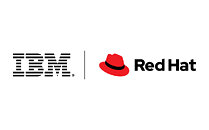T0@st
News Editor
- Joined
- Mar 7, 2023
- Messages
- 2,077 (3.43/day)
- Location
- South East, UK
Oracle has been part of the Linux community for 25 years. Our goal has remained the same over all those years: help make Linux the best server operating system for everyone, freely available to all, with high-quality, low-cost support provided to those who need it. Our Linux engineering team makes significant contributions to the kernel, file systems, and tools. We push all that work back to mainline so that every Linux distribution can include it. We are proud those contributions are part of the reason Linux is now so very capable, benefiting not just Oracle customers, but all users.
In 2006, we launched what is now called Oracle Linux, a RHEL compatible distribution and support offering that is used widely, and powers Oracle's engineered systems and our cloud infrastructure. We chose to be RHEL compatible because we did not want to fragment the Linux community. Our effort to remain compatible has been enormously successful. In all the years since launch, we have had almost no compatibility bugs filed. Customers and ISVs can switch to Oracle Linux from RHEL without modifying their applications, and we certify Oracle software products on RHEL even though they are built and tested on Oracle Linux only, never on RHEL.


While Oracle and IBM have compatible Linux distributions, we have very different ideas about our responsibilities as open source stewards and about operating under the GPLv2. Oracle has always made Oracle Linux binaries and source freely available to all. We do not have subscription agreements that interfere with a subscriber's rights to redistribute Oracle Linux. On the other hand, IBM subscription agreements specify that you're in breach if you use those subscription services to exercise your GPLv2 rights. And now, as of June 21, IBM no longer publicly releases RHEL source code.
Why did IBM make this change? Well, if you read IBM's blog attempting to explain its rationale, it boils down to this: "At Red Hat, thousands of people spend their time writing code to enable new features, fixing bugs, integrating different packages and then supporting that work for a long time … We have to pay the people to do that work."
Interesting. IBM doesn't want to continue publicly releasing RHEL source code because it has to pay its engineers? That seems odd, given that Red Hat as a successful independent open source company chose to publicly release RHEL source and pay its engineers for many years before IBM acquired Red Hat in 2019 for $34 billion.

The blog goes on to mention CentOS. It is no surprise CentOS was top of mind for the author attempting to justify withholding RHEL source. CentOS had been a very popular free RHEL compatible distribution. In December 2020, IBM effectively killed it as a free alternative to RHEL. Two new alternatives to RHEL have sprung up in CentOS's place: AlmaLinux and Rocky Linux. Now, by withholding RHEL source code, IBM has directly attacked them.
And perhaps that is the real answer to the question of why: eliminate competitors. Fewer competitors means more revenue opportunity for IBM.
As for Oracle, we will continue pursuing our goal for Linux as transparently and openly as we always have while minimizing fragmentation. We will continue to develop and test our software products on Oracle Linux. Oracle Linux will continue to be RHEL compatible to the extent we can make it so. In the past, Oracle's access to published RHEL source has been important for maintaining that compatibility. From a practical standpoint, we believe Oracle Linux will remain as compatible as it has always been through release 9.2, but after that, there may be a greater chance for a compatibility issue to arise. If an incompatibility does affect a customer or ISV, Oracle will work to remediate the problem.
We want to emphasize to Linux developers, Linux customers, and Linux distributors that Oracle is committed to Linux freedom. Oracle makes the following promise: as long as Oracle distributes Linux, Oracle will make the binaries and source code for that distribution publicly and freely available. Furthermore, Oracle welcomes downstream distributions of every kind, community and commercial. We are happy to work with distributors to ease that process, work together on the content of Oracle Linux, and ensure Oracle software products are certified on your distribution.
By the way, if you are a Linux developer who disagrees with IBM's actions and you believe in Linux freedom the way we do, we are hiring.
One observation for ISVs: IBM's actions are not in your best interest. By killing CentOS as a RHEL alternative and attacking AlmaLinux and Rocky Linux, IBM is eliminating one way your customers save money and make a larger share of their wallet available to you. If you don't yet support your product on Oracle Linux, we would be happy to show you how easy that is. Give your customers more choice.
Finally, to IBM, here's a big idea for you. You say that you don't want to pay all those RHEL developers? Here's how you can save money: just pull from us. Become a downstream distributor of Oracle Linux. We will happily take on the burden.
View at TechPowerUp Main Site | Source
In 2006, we launched what is now called Oracle Linux, a RHEL compatible distribution and support offering that is used widely, and powers Oracle's engineered systems and our cloud infrastructure. We chose to be RHEL compatible because we did not want to fragment the Linux community. Our effort to remain compatible has been enormously successful. In all the years since launch, we have had almost no compatibility bugs filed. Customers and ISVs can switch to Oracle Linux from RHEL without modifying their applications, and we certify Oracle software products on RHEL even though they are built and tested on Oracle Linux only, never on RHEL.


While Oracle and IBM have compatible Linux distributions, we have very different ideas about our responsibilities as open source stewards and about operating under the GPLv2. Oracle has always made Oracle Linux binaries and source freely available to all. We do not have subscription agreements that interfere with a subscriber's rights to redistribute Oracle Linux. On the other hand, IBM subscription agreements specify that you're in breach if you use those subscription services to exercise your GPLv2 rights. And now, as of June 21, IBM no longer publicly releases RHEL source code.
Why did IBM make this change? Well, if you read IBM's blog attempting to explain its rationale, it boils down to this: "At Red Hat, thousands of people spend their time writing code to enable new features, fixing bugs, integrating different packages and then supporting that work for a long time … We have to pay the people to do that work."
Interesting. IBM doesn't want to continue publicly releasing RHEL source code because it has to pay its engineers? That seems odd, given that Red Hat as a successful independent open source company chose to publicly release RHEL source and pay its engineers for many years before IBM acquired Red Hat in 2019 for $34 billion.

The blog goes on to mention CentOS. It is no surprise CentOS was top of mind for the author attempting to justify withholding RHEL source. CentOS had been a very popular free RHEL compatible distribution. In December 2020, IBM effectively killed it as a free alternative to RHEL. Two new alternatives to RHEL have sprung up in CentOS's place: AlmaLinux and Rocky Linux. Now, by withholding RHEL source code, IBM has directly attacked them.
And perhaps that is the real answer to the question of why: eliminate competitors. Fewer competitors means more revenue opportunity for IBM.
As for Oracle, we will continue pursuing our goal for Linux as transparently and openly as we always have while minimizing fragmentation. We will continue to develop and test our software products on Oracle Linux. Oracle Linux will continue to be RHEL compatible to the extent we can make it so. In the past, Oracle's access to published RHEL source has been important for maintaining that compatibility. From a practical standpoint, we believe Oracle Linux will remain as compatible as it has always been through release 9.2, but after that, there may be a greater chance for a compatibility issue to arise. If an incompatibility does affect a customer or ISV, Oracle will work to remediate the problem.
We want to emphasize to Linux developers, Linux customers, and Linux distributors that Oracle is committed to Linux freedom. Oracle makes the following promise: as long as Oracle distributes Linux, Oracle will make the binaries and source code for that distribution publicly and freely available. Furthermore, Oracle welcomes downstream distributions of every kind, community and commercial. We are happy to work with distributors to ease that process, work together on the content of Oracle Linux, and ensure Oracle software products are certified on your distribution.
By the way, if you are a Linux developer who disagrees with IBM's actions and you believe in Linux freedom the way we do, we are hiring.
One observation for ISVs: IBM's actions are not in your best interest. By killing CentOS as a RHEL alternative and attacking AlmaLinux and Rocky Linux, IBM is eliminating one way your customers save money and make a larger share of their wallet available to you. If you don't yet support your product on Oracle Linux, we would be happy to show you how easy that is. Give your customers more choice.
Finally, to IBM, here's a big idea for you. You say that you don't want to pay all those RHEL developers? Here's how you can save money: just pull from us. Become a downstream distributor of Oracle Linux. We will happily take on the burden.
View at TechPowerUp Main Site | Source





